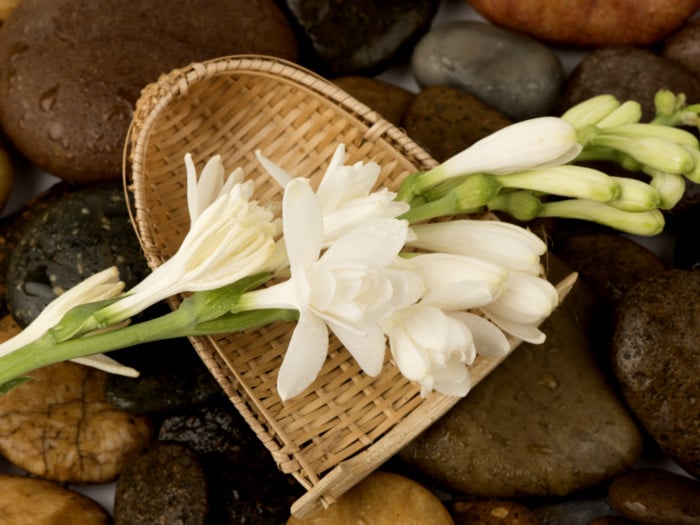Tuberose is a night-blooming flower with many different names around the world, but not many people know about its extensive list of health benefits.
What is Tuberose?
Tuberose (Polianthes tuberosa) is a native Mexican plant, which has large white flowers and a bulbous root. It is a member of the agave family, with heavily scented flowers that bloom at night. Since the 17th century, it has been used as a staple scent in the perfume industry and been a particular favorite of much of the French royalty. Unlike its name, the flowers do not resemble roses, but instead, the name refers to the tuberous root system and its overpowering scent, which is quite similar to jasmine. The scent of this flower is so musky and sweet that it is used in some folk traditions as an aphrodisiac. [1]

Tuberose is native to Mexico. Photo Credit: Shutterstock
Tuberose comes in many varieties but is categorized by the number of flowers each stalk bears: single, semi-double, or double.
Benefits
There are many amazing benefits of tuberose, including the following:
- Tuberose is naturally antispasmodic and helps in reducing cramps and coughing. It is a great treatment for influenza or colds.
- It is antimicrobial in nature and used in topical applications to fight skin infections, such as psoriasis, eczema or acne. [2]
- It is a light sedative, and an antidepressant, promoting relaxation and preventing insomnia for those suffering from sleeplessness or chronic fatigue syndrome.
- It is a circulatory booster, so it is used to treat impotence, but it can also boost libido and stamina. It produces a warming sensation throughout the body.
- Because of the antiseptic and anti-nausea properties of this flower, it is a good treatment for ulcers.
- Tuberose is a popular treatment for cataracts
- It is known to alleviate the symptoms of anemia. [3]
- As an anti-inflammatory, it helps treats symptoms of strep throat.
Word of Warning: Tuberose bulbs and flowers are diuretics, and consumption of the tuber of the plant can result in vomiting. Due to the somewhat unregulated use of this flower in various medical applications, it is recommended to speak with your doctor, particularly if you are sensitive to agave plants or nectar.
